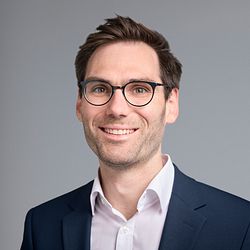
News -
Rolande Opens New Bio-LNG Filling Station in Großmehring, Bavaria
With the commissioning of a new Bio-LNG filling station in Großmehring near Ingolstadt, Dutch company Rolande – a member of DIE GAS- UND WASSERSTOFFWIRTSCHAFT – continues to expand its network of stations in Germany. Located directly on the A9 motorway, one of Europe’s key north–south transport corridors, the site aims to strengthen the supply of sustainable fuel for freight carriers and logistics companies.
At the official opening on 22 October 2025, customers, partners, and representatives from politics and business gathered to celebrate the new facility. In his welcoming remarks, Rolande CEO Jolon van der Schuit emphasized the importance of the new location for the transition to sustainable transport solutions. Member of the German Bundestag Christian Moser also underlined in his address that alternative fuels such as Bio-LNG play a crucial role in decarbonizing the heavy-duty transport sector.
The Großmehring station is open 24/7 and specifically designed to meet the needs of international freight transport. It features two LNG dispensers, wide driveways, and a self-service system.
Bio-LNG is produced from organic residues such as manure and food waste and can be used directly in existing LNG trucks. According to Rolande, this enables CO₂ reductions of up to 200 percent compared to diesel, particularly when the entire value chain is taken into account. The fuel is fully certified and meets the requirements of the EU’s Corporate Sustainability Reporting Directive (CSRD).
With the new Großmehring site, Rolande continues to expand its German network. The company already operates several filling stations along major transport routes and aims to create a comprehensive refueling infrastructure for European heavy-duty transport. “We continue to invest strategically in key locations to accelerate the transition to fossil-free transport – without compromising on profitability or range,” said van der Schuit.
Rolande is considered one of the pioneers in LNG and Bio-LNG infrastructure and operates a dense network of stations in the Netherlands, Belgium, and Germany. Through the targeted expansion of its network, the company aims to provide logistics operators and shippers with a practical and economically viable path toward low-carbon mobility.

